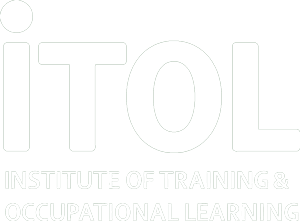Do You Think Critically or are you a Critical Thinker? (Pt 1)
A recent World Economic Forum study confirmed that critical thinking (a critical thinker) tops the list of skills that employers value in their workforce. It was also reported that critical thinking would become of even greater importance in the coming years. Those who master the practice of critical thinking make excellent leaders and are highly valued and respected members of the workplace.
What Is Critical Thinking?
Critical thinking has developed many definitions over the years. However, in its simplest explanation, it is
“the ability to think logically and reasonably through detaching yourself from subjective opinions, emotions and bias. Critical thinking involves analysing all the information available and interpreting the facts to solve a problem or make an informed decision or judgement.”
Training professionals regularly need to utilise critical thinking skills to adapt to change, face complex situations and be aware of the various points of view of diverse groups. The 21st century requires trainers to regularly think and re-evaluate their decisions that affect their work and life. A fairly recent example would be many training professionals having to shift their programmes to accommodate remote learners during the COVID-19 pandemic. Critical thinking also helps training professionals analyse how their programmes can evolve to best meet the needs of their learners.
Individuals who excel at critical thinking work hard to learn the skills and practices involved and consciously commit to the habit of using these skills to guide their behaviour and decision making.
To hone your critical thinking skills, make sure to:
- Clarify Your Thinking
More than ever, we are bombarded with information daily. Yet, effective critical thinking requires an ability to ‘turn down the noise’ and overstimulation and focus on your purpose and context.
- Question Your Sources of Information
To think critically about the information you’re consuming, ask yourself: Are your sources of information credible, reliable and free of bias?
- Identify and Analyse Possible Counterarguments
Identifying counterarguments allows you to understand different structures of thinking and broadens your thoughts on a particular topic. Before making your own evaluation, it is essential to interpret and understand the varying information and opinions associated with a given decision. Analysing different arguments, and the reasons and evidence behind them, ensures that you have a deep understanding of multiple perspectives before coming to your own conclusion.
- Create Your Own Informed Decision or Judgment
Once you have critically evaluated the information and differing perspectives, you can successfully integrate all the insights into the development of your own argument. Your argument is likely to be robust because you can articulate the reasons and evidence behind your decision and your analysis of the opposing views.

